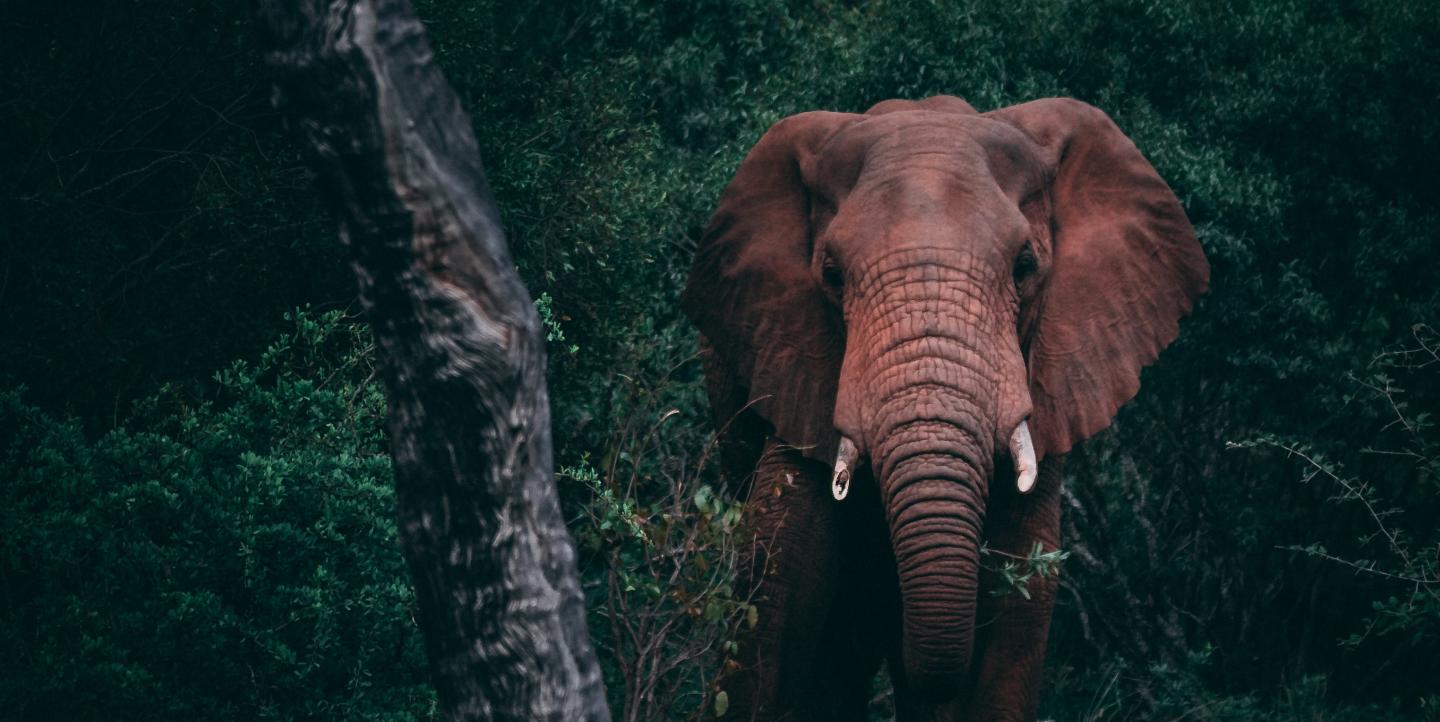Indonesia is rich in wildlife diversity; however, its native animals face the threat of extinction. For example, the Sumatran elephant is critically endangered in part from threats from poachers. In May, a pregnant elephant was found dead in a plantation area in Bengkalis Regency. A few months earlier, a male elephant was also found dead in an oil palm plantation area in Aceh Timur Regency with a severed head.
Data from Auriga Nusantara, an environmental preservation NGO, showed that at least 183 Sumatran elephants died between January 2010 and July 2022. These elephants are most often hunted for their tusks, or killed because they are considered pests to local communities.
The Sumatran elephant is not the only species at risk. Today, 189 species of native Indonesian fauna are critically endangered, based on 2021 data from the International Union for the Conservation of Nature.
In 2017, concerns about the extinction of protected animals prompted a group of activists to establish Garda Animalia, a civic organization committed to protecting wildlife. A year later, the organization launched a website that publishes reporting about wildlife in Indonesia with the aim of educating citizens on the threats facing endangered species.
Building public discourse
According to Garda Animalia’s editor *Liana, having an outlet focused on advocating for wildlife conservation became a necessity due to the fact that many crimes accelerating animals’ extinction go unpunished. While the country's Law on Conservation of Biological Natural Resources and Ecosystems stipulates the punishment for perpetrators of hunting and trafficking wildlife to be a maximum imprisonment of five years and a fine of Rp.100 million, in reality, many court rulings against violators are far lighter.
"The level of crime against wildlife is very high, which includes, among others, illegal trade, hunting and keeping. Meanwhile, the Indonesian government does not consider this issue an urgent matter that needs to be addressed immediately, either because there are so many problems that they have to solve or simply because they consider this issue unimportant," said Liana. According to data from Global Forest Watch, Indonesia lost 9.75 million hectares, equivalent to 10% of its primary forests between 2002 and 2020, due in part to land clearing for oil palm plantations. This practice makes animals’ habitats smaller, so conflicts with humans regularly occur, which can lead to killings.
The conditions are exacerbated by the lack of public awareness of the preservation of protected animals, too. "Most people only like to discuss issues related to their short-term needs such as rising food and fuel prices, and pay less attention to issues that have long-term impacts such as the extinction of wildlife," said Liana. "In fact, wildlife has a very important role in maintaining the balance of the ecosystem."
Garda Animalia exists in a media ecosystem in Indonesia in which wildlife issues do not get much mainstream coverage. Liana hopes the outlet can be a mouthpiece for the interests of wild animals and fill the information gap. "Basically we are trying to build public opinion, as well as encourage policy changes that are more pro-animal welfare," she said.
Animal defender team
Garda Animalia is run by volunteers who manage both the organization and its media. The team carries out various tasks such as research, journalistic investigations, awareness campaigns, support for anti-poaching law enforcement and conservation advocacy. "We have approximately 50 contributors [to the website] spread across various cities in Indonesia," said Liana.
The site also regularly collects data on illegal wildlife trade, both online and offline. Some of the sections presented in Garda Animalia’s media are news, special coverage, opinions and education about fauna, which are distributed to various digital platforms such as websites, Youtube, Instagram and Twitter. According to Liana, Facebook is still a popular space for buyers and sellers to communicate online. Offline monitoring is carried out in animal markets across Indonesia. Any data obtained is then processed for reporting and investigative coverage with the aim of notifying law enforcement.
Garda Animalia writer Finlan Aditya Aldan has covered a range of topics about the condition of wildlife in Indonesia, including an investigative story on the conflict between humans and elephants. In the piece, he found that elephants' habitat in Tesso Nilo National Park was decreasing due to the expansion of oil palm land by farmers, despite the clearing of oil palm land in national parks being prohibited. Aldan also investigated the threat to the turtle population around the south coast of Yogyakarta Province. He found that local residents were driven by economic necessity to loot turtle eggs to be traded, which in turn threatens the survival of these animals.
"From the two reports, I conclude that people hunt or disturb the habitat of these wild animals for economic reasons. They can be educated about the prohibition of hunting wild animals, but as long as they are 'hungry,' they will continue to do so," said Aldan. "Investigation coverage, especially regarding protected animals, is necessary because it reveals practices in the field that not many people know about."
Challenge of the media
One obstacle Garda Animalia is trying to overcome is attracting and maintaining readers’ interest in coverage on wildlife. To do so, the outlet takes suggestions from readers and varies the way they package their content.
"Audiences’ preferences are different. Some like to watch, some like to listen while doing activities [and] some like to read because they feel they can absorb it more," said Liana. "Therefore we must continue to adapt to the times and the tastes of the audience."
One of the site’s readers, Ita Sadrini Astuti, said the organization’s existence is important because it educates and reminds the public about the importance of preserving protected animals. She hopes the media team will continue to be consistent and enthusiastic in their work, as the topics they raise are important yet often ignored.
"I think this is a challenge for the manager of [Garda Animalia]: how to make this media relevant and popular with the audience," said Astuti. "I believe no effort is wasted as long as it is done consistently."
Plans for the future
Garda Animalia plans to improve the journalistic skills of its contributors, and will also continue to investigate and monitor the illegal wildlife trade, and conduct legal studies related to the issue, explained Liana. The team also plans to continue to urge the government to revise the Conservation of Biological Natural Resources and Ecosystems law so that penalties for violators are consistent.
"Almost every day we find bad events that happen to wild animals. We must always bring up these problems to the public so that they are aware that [the animals] are not okay," said Liana.
*First name only used for safety purposes.
Photo by Geran de Klerk on Unsplash.


